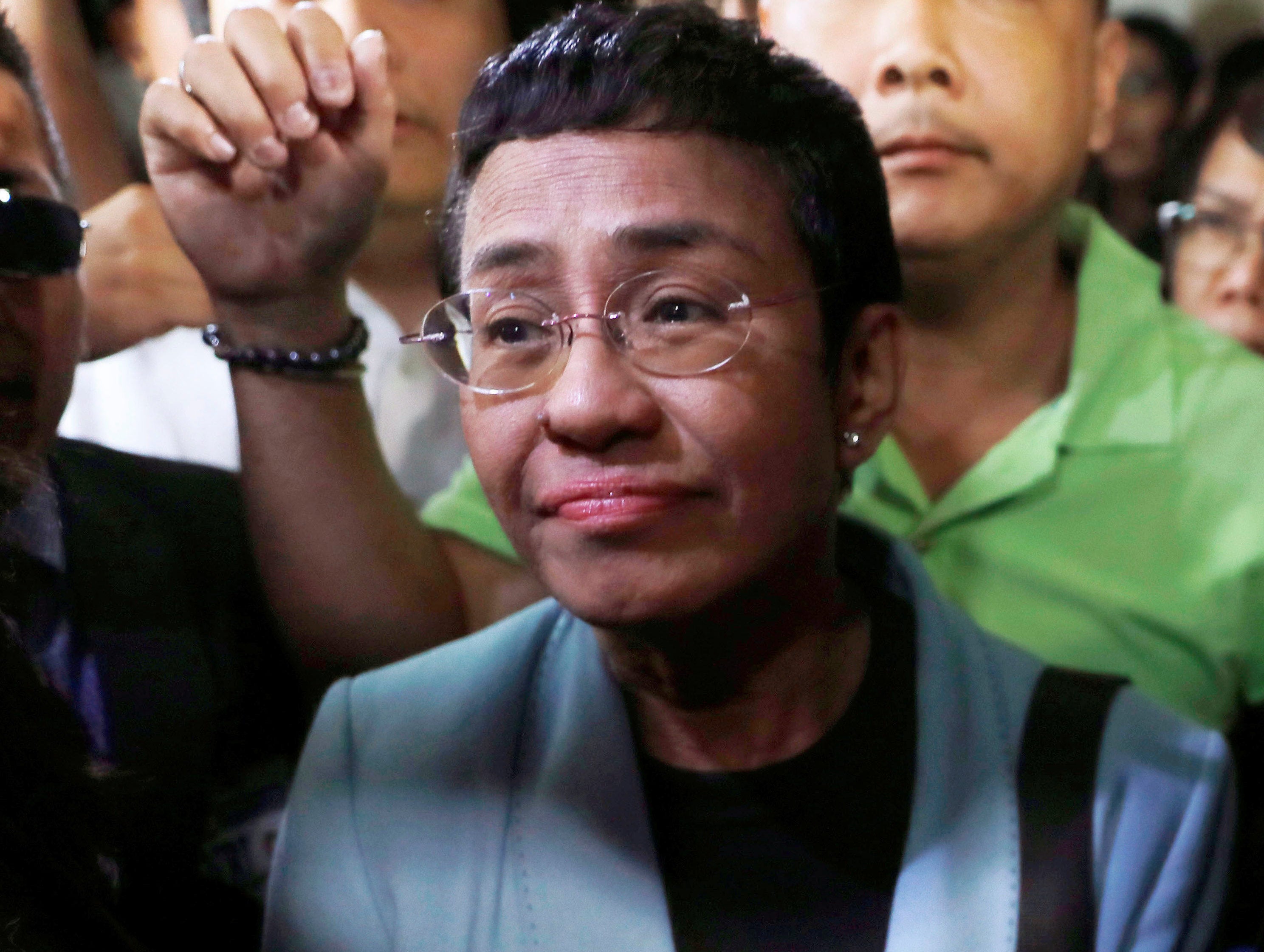
Lawyers for Nobel Prize-winning journalist Maria Ressa have called for an end to the “rot” facing press freedom in the Philippines after she had a six-year sentence for cyber libel increased.
Ressa, co-founder of the Rappler news website and last year’s joint recipient of the Nobel Peace Prize, was appealing a conviction for “cyber libel”.
Despite a legal team including human rights lawyer Amal Clooney, Ressa’s conviction was upheld, with the Manila Regional Trial court increasing her six-year imprisonment by eight months and 20 days.
She was tried alongside former Rappler journalist Reynaldo Santos Jr, who received the same sentence.
Caoilfhionn Gallagher QC, working for Ressa alongside Clooney, called on incoming president Ferdinand Marcos Jr to restore protections and “stop the rot” of press freedom, claiming these had been “severely weakened” under his predecessor, Rodrigo Duterte.
Clooney said the judgment “shows that Maria has been considered guilty until proven innocent – and then prevented from proving her innocence. I hope that the Philippines Supreme Court will now set things right – and restore the country’s constitutional commitment to freedom of speech”.
Following the hearing, Ressa said: “This decision follows alarming developments for press freedom over the past three weeks: the unprecedented blocking of news websites, the shutdown order of Rappler, the killing of a media worker, and increased online attacks against journalists and activists.
“Despite these sustained attacks from all sides, we will continue to do our jobs. Independent journalism in the Philippines is needed now more than ever.”
Cyber libel, referring to an act of libel committed through a computer system, is punishable by up to eight years’ imprisonment in the Philippines.
Charges were brought against Ressa in 2017 over a 2012 Rappler story that alleged links between a businessman and a top Filipino judge.
The ruling has proved controversial because the sentence is based on a law that did not exist at the time the article was published.
Ressa’s legal team claimed that the ruling “flies in the face of international law” and a warning from the Philippines Supreme Court that “the constitutionality of criminalising libel is doubtful”.
They also said the article was “a report on a matter of public interest written in good faith [and] should be protected free speech in Philippine law”.
The Philippines has drawn international criticism over the case. The UN expressed grave concern at the treatment of Ressa, stressing “the staggering cost of the relentless and systematic assault on the most basic rights of Filipinos” at the hands of the government.
The US State Department has said it was “concerned” by the verdict, with Congress identifying Ressa as “a journalist in need of protection” in 2020. The EU said the conviction “raises serious doubts over the respect for freedom of expression as well as for the rule of law in the Philippines”.
The ruling comes amid allegations of a larger government-led attack on press freedoms in the Philippines. The country is placed 147th of 180 on the 2022 RSF World Press Freedom Rankings, dropping nine spaces in the past year.
The RSF said that since 2016 the Filipino government has led “targeted attacks and constant harassment” of journalists and media outlets that were critical of the regime, claiming the former president Duterte “does not tolerate criticism”.
Although the country’s constitution guarantees press freedom, experts say defamation and libel law in practice does not allow journalists to work freely.
The government instigated a series of attacks and shutdown orders against news sites throughout June, with Rappler one of the publications targeted. The Securities and Exchange Commission’s order to shut the site follows a 2018 claim that it was wholly owned by US investors, breaking constitutional laws on foreign ownership of domestic media, a move Ressa told the New York Times was “illegal” and “highly irregular”.
Deputy Asia director for Human Rights Watch, Phil Robertson, claimed in June that the shutdown was part of a “government vendetta” against Ressa, stating the order was “an effort to shut-up Nobel Laureate Maria Ressa, and shut down Rappler, by hook or by crook”.
Other sites targeted include Bulatlat and Pinoy Weekly, which the government alleges have links to communist rebel groups. The National Union of Journalists of the Philippines (NUJP) denounced these shutdowns, saying the government did not provide any notice to the newsrooms nor allow them to refute the National Security Council’s “reckless claims”.
The ruling took place a week after political radio commentator, Federico ‘Ding’ Gempesaw, was shot dead on 29 June in Cagayan de Oro. UNESCO statistics show that 34 journalists have been killed in the past decade in the Philippines, with the perpetrators often not brought to justice.
Picture: Reuters/Eloisa Lopez
Email pged@pressgazette.co.uk to point out mistakes, provide story tips or send in a letter for publication on our "Letters Page" blog
